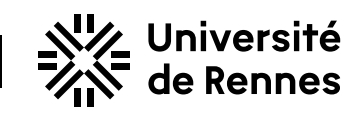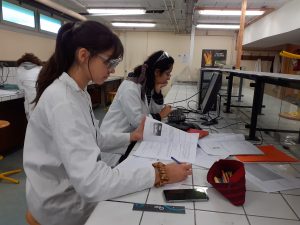 Students are involved in devising their course of training (choosing their Major, sections and modules, placements, etc.) in line with their proposed career.
Students are involved in devising their course of training (choosing their Major, sections and modules, placements, etc.) in line with their proposed career.
This enables them to acquire the skills needed by business, to consolidate their international culture and their knowledge of the industrial world
Content/methods
The training given at the ENSCR is based on breaking down barriers between disciplines and a project-based educational method.
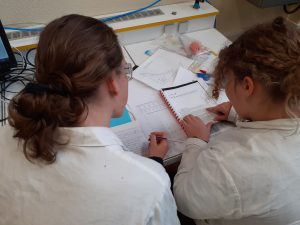 Project-based teaching encourages students to work in a group, to organise themselves, to research and prioritise information, to develop their spirit of initiative. It is one of the priorities of the School. Currently, projects are introduced:
Project-based teaching encourages students to work in a group, to organise themselves, to research and prioritise information, to develop their spirit of initiative. It is one of the priorities of the School. Currently, projects are introduced:
– in the first year: in developing new multimedia products in addition to lessons with the tutors concerned and professionals from industry; in creating a innovative project, from the initial idea to the marketing of the product, guided throughout by staff of the school and guest speakers;
– in the second and third years: in the area of health and safety in industry, in partnership with the INRS, the Caisse Régionale d’Assurance Maladie and companies for case studies; in teaching majors in the form of a practical project (2nd year), a project working in pairs, and an individual bibliographical project in the preparation of the end-of-course project (third year).
The most modern resources in the way of scientific facilities, materials and Information and Communication Technologies for Education (ICTE) are used in training especially via e-training – a platform of on-line lessons. It allows teachers to provide students with resources and access to activities on line. The students can obtain resources and collaborate on remote projects.
Specific tutoring for the majors, and a very dynamic placement and industrial relations department to guide ENSCR student-engineers into their first job.
General presentation of the ENSCR
(English version coming soon).
Download a description of the Teaching Modules for each term with the coefficients and the ECTS credits:
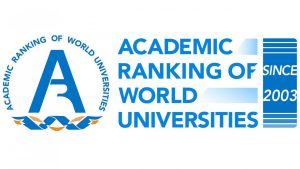 In 2020, the ENSCR entered the Shanghai international ranking for the first time. This is a ranking of the world’s leading universities compiled annually by researchers from Shanghai Jiao-tong University in China. The institutions are classified according to a single index calculated from six quantitative criteria, in particular the number of researchers among those who are most cited and a productivity criterion related to the size of the teaching staff. In this 2020 ranking, 34 French establishments were distinguished. The ENSCR was classified in the “Chemical Engineering” theme alongside the Universities of Aix-Marseille, Strasbourg, Bordeaux, Poitiers… At the top of this category, we find MIT and Stanford University.
In 2020, the ENSCR entered the Shanghai international ranking for the first time. This is a ranking of the world’s leading universities compiled annually by researchers from Shanghai Jiao-tong University in China. The institutions are classified according to a single index calculated from six quantitative criteria, in particular the number of researchers among those who are most cited and a productivity criterion related to the size of the teaching staff. In this 2020 ranking, 34 French establishments were distinguished. The ENSCR was classified in the “Chemical Engineering” theme alongside the Universities of Aix-Marseille, Strasbourg, Bordeaux, Poitiers… At the top of this category, we find MIT and Stanford University.
Placements and gap year
These are an integral part of the Professional Project of each student-engineer and occur throughout the course. These periods of business placement enable them to develop general, technical and managerial skills. They culminate in a written report and an oral presentation, both of which are assessed.
The placements are compulsory.
| Year | Time | Aim |
| 1st year | = or > 8 weeks, beginning in June | to discover business life |
| 2nd year | = or > 13 weeks, beginning in May | to face the student with a technical situation on industrial problems |
| 3rd year | = or > 18 weeks, beginning in February-March | to allow the student-engineer to carry through a large-scale project, in a company or in a research laboratory, or as part of a Research Master. |
Placements and study trips abroad:
The Placements and International Relations departments work jointly to help students to spent part of their course abroad. A travel grant can be given if precise criteria are met, depending on the nature of the placement (in a company or at a university), the place (Europe or outside Europe), and social criteria (scholarship-holder or not).
In addition to local finance (companies and laboratories offering placements), students each year benefit from grants under the schemes ERASMUS + and Jeunes à L’International (JALI) from the Brittany Regional Council.
The Association of Former Students of the ENSCR and the School itself have funds to cover part of the travel costs for some students.
The gap year:
Students wanting to build on their work experience have the option of taking a gap year, between their second and third year, in France or abroad. This opportunity is subject to the approval of a committee judging the validity of the project and its being in line with the student’s professional targets. The administrative registration of the student is compulsory.
Travel abroad
Foreign travel is one of the great advantages of ENSCR courses. As one of our students, you are strongly encouraged to gain experience of travelling abroad.
Depending on your career plans and the specific training offered by the schools, you also have the option of spending your third year in one of the schools of the Gay Lussac Federation (FGL).
As a foreign student, the ENSCR offers you every opportunity to carry out your project.
Double-diploma ENSCR- IFP School
Students who have completed two academic years of study on engineering course at the ENSCR have the option of joining a two-year programme leading to a double diploma: an engineering degree from the ENSCR after 16 months of the programme and the IFP School diploma at the end of the second year of the programme.
Applications by these students must be approved and then presented by the ENSCR, and will be put before the admissions panel of the relevant IFP School.
Specialist Year in Atomic Engineering at the INSTN (National Institute of Nuclear Science and Technology)
An agreement between the INSTN and the ENSCR offers students-engineers in their second year the option of spending their third year at the INSTN, following a specialist course for engineers in Atomic Engineering. At the end of this course they obtain the engineering degree from the ENSCR and also a certificate of specialisation in Atomic Engineering from the INSTN. This involves training in nuclear science and techniques aimed at reactor systems.
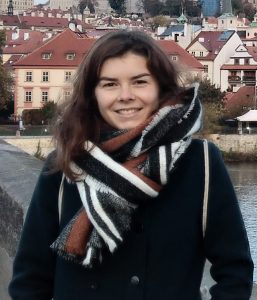 “I left for five months during the first semester of my 3rd year of school at the University of Chemistry and Technology (UCT) in Prague, Czech Republic. The goal of this exchange was to acquire skills similar to those I would have had at the ENSCR while enjoying courses in English and another way of teaching. This experience allowed me to travel and meet students of other nationalities. At the beginning of the stay, Czech seemed inaccessible to me but after a few language classes at the UCT, I learned to cope in everyday life. I strengthened my level of English during classes and thanks to other Erasmus students. This semester was also an opportunity to discover Prague and the Czech Republic during the winter by enjoying outdoor rinks, the many Christmas markets, hockey games and the goulash!”
“I left for five months during the first semester of my 3rd year of school at the University of Chemistry and Technology (UCT) in Prague, Czech Republic. The goal of this exchange was to acquire skills similar to those I would have had at the ENSCR while enjoying courses in English and another way of teaching. This experience allowed me to travel and meet students of other nationalities. At the beginning of the stay, Czech seemed inaccessible to me but after a few language classes at the UCT, I learned to cope in everyday life. I strengthened my level of English during classes and thanks to other Erasmus students. This semester was also an opportunity to discover Prague and the Czech Republic during the winter by enjoying outdoor rinks, the many Christmas markets, hockey games and the goulash!”
Innov'chem Challenge
Every year, 1st year engineering students benefit from a week dedicated to innovation and business creation, which takes the form of a challenge during which they must design an innovative product on a theme. imposed.
Divided into groups, they must present an original project in one or more of these elements: the concept, the raw materials, the technology, the formulation, the packaging, and / or the packaging …
For 3 days, groups of students compete by tackling all aspects of the development of their project, from the initial idea to the marketing of the product. During a final presentation, each group has 180 seconds to convince the jury of the innovation and commercial potential of their project.
The jury then assesses, more generally, the projects according to various criteria: technical file, marketing, project management, etc.

